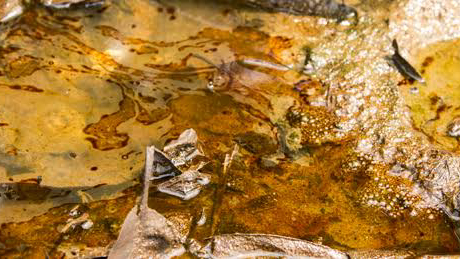Niger Delta: Only 11% Of Contaminated Sites Have Ongoing Clean-up

Nine years after the United Nations Environmental Programme (UNEP) recommended a clean-up of areas polluted by crude oil exploration by Shell and other oil companies in the Niger Delta and the project launch by the Federal Government in 2016, work has only begun in 11 per cent of planned sites.
Four non-governmental – Friends of the Earth Europe, Amnesty International, Environmental Rights Action and Milieudefensie – made their findings on the situation known in a report titled, ‘No Clean-Up, No Justice: Shell’s oil pollution in the Niger Delta’, released on Thursday.
In 2011, UNEP released a report documenting the devastating impact of the activities of the oil industry in Ogoniland and recommended urgent massive clean-up of the environment for the benefit of the people.
The groups in their report stated that “emergency measures” proposed by UNEP had not been properly implemented and that the billion-dollar clean-up project launched by the Nigerian government had been ineffective.
Over five decades, oil and gas extraction have caused large-scale, continued contamination of the water and soil in Ogoni communities.
According to the report, the continued and systematic failure of oil companies and the government to clean up have left hundreds of thousands of Ogoni people facing serious health risks, struggling to access safe drinking water, and unable to earn a living.
It added that numerous conflicts of interest around Shell had been revealed involving the management of the clean-up agency, Hydrocarbon Pollution Remediation Project (HYPREP), and the Nigerian government.
Reflecting on the issues, Godwin Ojo, Environmental Rights Action/Friends of the Earth Nigeria, said, “After nine years of promises without proper action and decades of pollution, the people of Ogoniland are not only sick of dirty drinking water, oil-contaminated fish and toxic fumes.
“They are sick of waiting for justice, they are dying by the day. The Nigerian government should acknowledge this project has been a failure and reinvigorate HYPREP with technical skills and strategic thinking, fully involving the community.”
On his part, Colin Roche, Friends of the Earth Europe, emphasized the need for justice for the affected communities.
He said, “Nine years on, there is still no clean-up, no ‘emergency’ health and water measures, no transparency and no accountability.
“Without urgent action there will be no justice. While oil companies like Shell spend millions greenwashing their image, tens of thousands of people continue to suffer from their pollution and negligence.
“European governments like the UK, the Netherlands, France and Italy must act to support a truly effective clean-up and ensure these companies are held accountable for the devastating pollution of the Niger Delt.,”
Osai Ojigho, Amnesty International Nigeria, said, “The discovery of oil in Ogoniland has brought huge suffering for its people.
“Over many years we have documented how Shell has failed to clean up contamination from spills and it’s a scandal that this has not yet happened.
“The pollution is leading to serious human rights impacts – on people’s health and ability to access food and clean water.
“Shell must not get away with this – we will continue to fight until every last trace of oil is removed from Ogoniland.”
Between 1976 and 1991, over two million barrels of oil polluted Ogoniland in 2,976 separate oil spills.
While oil production has ceased, pipelines operated by Shell still traverse the land, creeks and waterways.
Leakages – caused by corroded pipelines as well as bandits – mean that the area is still plagued by oil spills.
Support Our Journalism
There are millions of ordinary people affected by conflict in Africa whose stories are missing in the mainstream media. HumAngle is determined to tell those challenging and under-reported stories, hoping that the people impacted by these conflicts will find the safety and security they deserve.
To ensure that we continue to provide public service coverage, we have a small favour to ask you. We want you to be part of our journalistic endeavour by contributing a token to us.
Your donation will further promote a robust, free, and independent media.
Donate HereStay Closer To The Stories That Matter




